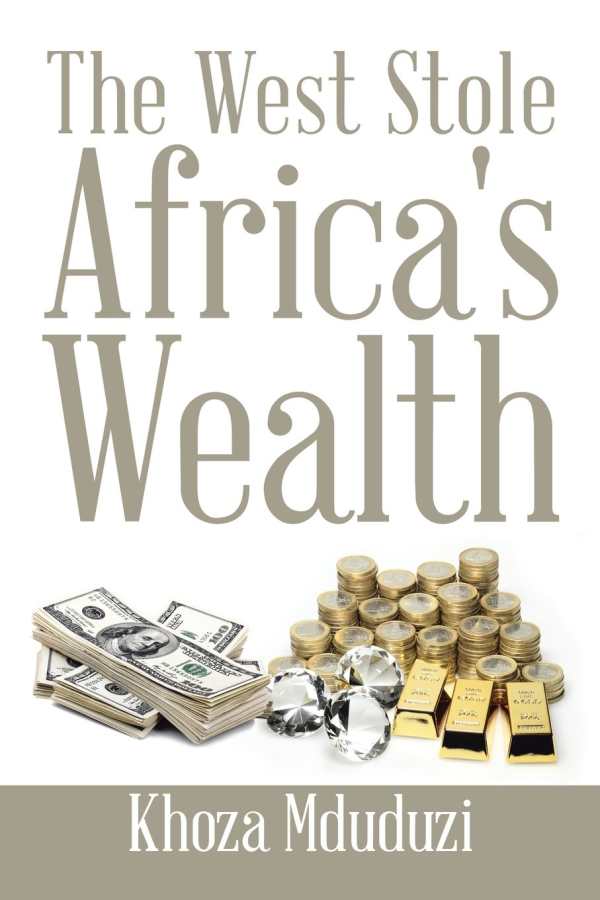The West Stole Africa's Wealth
This book is a long and comprehensive consideration of Africa that marks differences with Western perceptions.
Khoza Mduduzi’s The West Stole Africa’s Wealth is a sprawling historical and socioeconomic discussion of the continent’s problems that places blame on its colonizers. The treatise represents an affirmative response to its own call for intellectual and cultural works on Africa written by actual Africans, rather than Westerners.
Mduduzi makes the familiar argument that what ails Africa is its colonial past. His narrative is one of a continent living in peace and harmony until Europeans came to exploit its wealth, both human and natural. African national liberation movements, Mduduzi posits, erred in achieving political freedom for their newly founded countries but not securing more control over their own economies, and in particular, over mining resources.
The West Stole Africa’s Wealth is extensive, holding forth numerous topics, including socialism in Africa, land reform, controlled substance policies, and population control. It laments the devolution of liberation leaders from popular voices into “African capitalists” focused on exploiting their positions in government in order to enrich themselves, especially through relationships with the old colonial oppressors. These discussions often go astray of the thesis and grow long-winded, saying the same things a number of different ways.
The work decries a dearth of African studies by Africans, and is strongest when Mduduzi’s personal knowledge of the continent, as a citizen of South Africa, comes to the fore. He knows the backstories: what political parties stand for, how they really act and why, and the histories of key players leading groups. Although the book often gets into the weeds, recalling trips of discovery upon which its studies are based, its many earnest details sometimes well depict the continent.
The book includes antidotes to what it declares to be boilerplate, Western media narratives about a beleaguered economic environment rife with corrupt politicians, as in the case of Robert Mugabe, longtime president of Zimbabwe who, beyond his continent’s borders, is seen as a textbook example of a liberation leader gone bad. The author delivers a more nuanced view of the purported tyrant as a harassed leader of a poor country hobbled by economic sanctions and not without support in his overly policed state.
The text is wordy with awkward syntax. It tarries long on topics and digresses often. It also successfully brings to life places not much talked about beyond Africa, and tribal and political leaders who may not have risen to a level of international prominence but are important to the African story.
This is a long and comprehensive consideration of Africa that marks differences with Western perceptions, positing points of view that will be of interest to those wanting to know more about what the past represents, and what the future holds, in Africa.
Reviewed by
Stephen Siciliano
Disclosure: This article is not an endorsement, but a review. The publisher of this book provided free copies of the book and paid a small fee to have their book reviewed by a professional reviewer. Foreword Reviews and Clarion Reviews make no guarantee that the publisher will receive a positive review. Foreword Magazine, Inc. is disclosing this in accordance with the Federal Trade Commission’s 16 CFR, Part 255.

